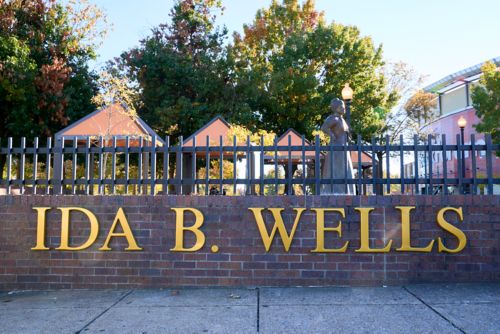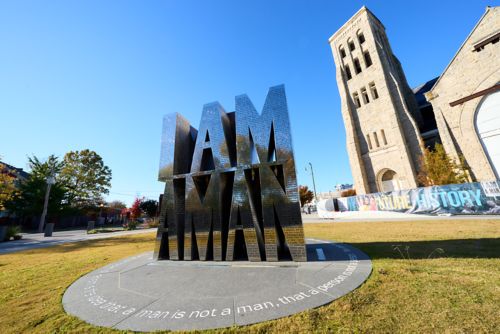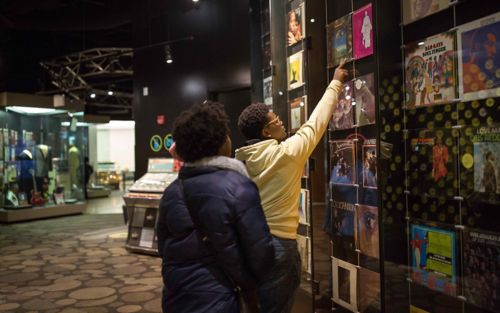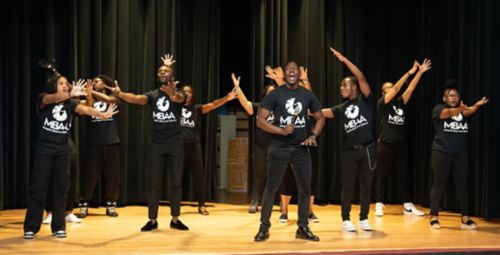Celebrating Memphis Black Culture
Memphis’s latest developments pay tribute to its past while making space for new leaders in Black culture to pave the way forward.

Memphis’s history is complex and rich, defined equally by tragedies and triumphs. It’s where Martin Luther King Jr. was assassinated in 1968, and it was also home to the first Black newspaper, the Memphis Free Speech, co-owned by the pioneering journalist Ida B. Wells. Memphis gave us rock and roll, Aretha Franklin, and Morgan Freeman. It’s home to the National Civil Rights Museum, as well as the Stax Museum of American Soul Music. Today, Memphis stands as the epicenter for Black community and culture, where Black innovators, creators, and business owners are brimming with new ideas, developments, and businesses.
Ida B. Wells Plaza and Statue

After both of her parents succumbed to yellow fever, Ida B. Wells moved to Memphis in 1882 to live with her aunt. Spurred by her own experiences with racism, Wells became the co-owner of the first Black newspaper, the Memphis Free Speech in 1892, where she wrote about Black injustice, including anti-lynching. Wells would go on to co-found the NAACP in 1910. Located on Beale and 4th Streets, the newly unveiled Ida B. Wells Plaza and Statue includes seating and landscaping and is an important stopping point on the Memphis Heritage Trail. A tribute long overdue, this plaza honors the legacy of a pioneering figure who helped to lay the groundwork for much of the Civil Rights Movement. And the statue is an inspiring reminder of the lasting impact Wells’ journalism and advocacy continues to have on Memphis.
Memphis Heritage Trail

I AM A MAN Plaza, adjacent to the Clayborn Temple, is where Memphis sanitation workers gathered during the 1968 sanitation strike. Clayborn Temple played a decades-long role in the Civil Rights Movement.
For a deeper look into African-American history and achievement in Memphis, the Memphis Heritage Trail provides a series of historical markers along an expansive path that covers a 20-block redevelopment area in South Memphis, Downtown, and also has links to the historic Orange Mound and Soulsville communities.
Soulsville Foundation

Visitors explore the Stax Museum of American Soul Music.
Soulsville USA is the nickname for the former home of Stax Records, one of the most popular soul music record labels of all time. The Soulsville Foundation and their Stax Music Academy now occupies the original site of Stax Records. The premier after-school and summer music institute focuses on the legacy of Stax artists such as Otis Redding, Isaac Hayes, Sam & Dave, and Booker T. & the M.G.’s, while providing unique performance opportunities and creative youth development programming to the community.
Memphis Black Arts Alliance, Inc.

Memphis is one of the largest majority-Black cities in America, and the new developments and businesses thriving across the Bluff City are a reflection of this. Memphis Black Arts Alliance, Inc. showcases and encourages the advancement of African-American arts, literature, and culture across greater Memphis. And its latest endeavor is a major $15 million development that will see the construction of a Black arts center tentatively called Soulsville Cultural Arts Center. The expansion of their existing facilities would provide space as well as encouragement for emerging Memphis artists to develop plays, music, visual artwork and other projects. LarJuanette Williams, the longtime head of the Memphis Black Arts Alliance, reflects on the artistic community in Memphis:
"When you think Memphis, you think about artists. The area is so packed with talent, and it's known throughout the world, it has global impact. And not just South Memphis and Soulsville, with all that Stax talent. We're out in Cordova, we're in Millington, we're in West Memphis. Como, Coldwater, we're all in this together."
But this spirit of ingenuity is not new to Memphis. Memphis is very much a city of firsts. It’s home to the first African-American congregation in Memphis and the first African-American millionaire in the south. This inventive spirit continues today with a variety of Black-owned restaurants and shops, including Speed Vegan Food Truck, Sweet Magnolia Gelato, and the Four Way. In a 2017 study, it was reported that 64% of new women-owned businesses in Memphis were started by women of color. To celebrate and support the growing number of Black-owned businesses across greater Memphis, Shop Black Fest hosts 150+ local Black-owned businesses, including food trucks, a DJ, vendors, and performances every year.
